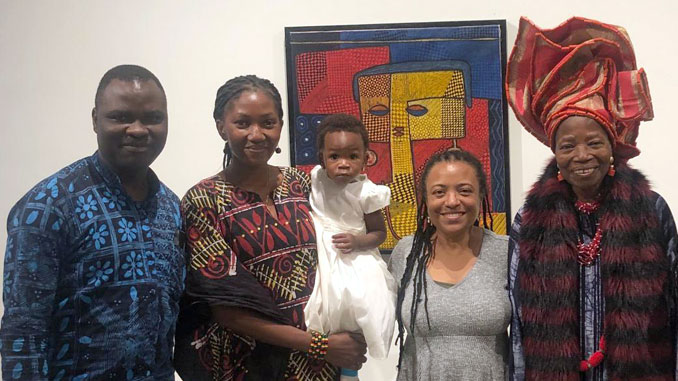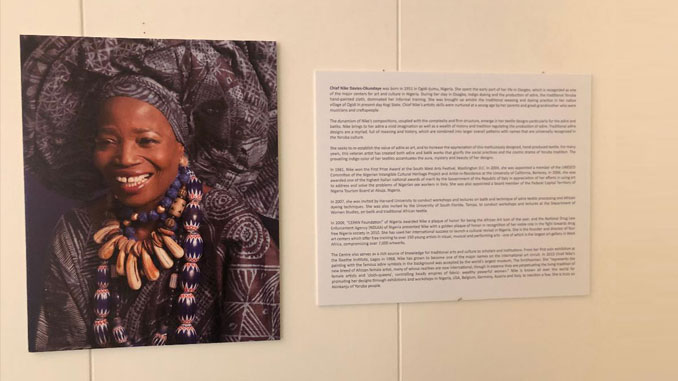
Story and Photos by Daylan Paige Data News Weekly Contributor
Textile Artist Oyenike Monica Okundaye, better known as Nike Okundaye, displayed the unique adire designs of the Yoruba Artform during a stay in New Orleans, hosted by Xavier University of Louisiana. Okundaye is the owner and curator of Nike Art Galleries in Lagos, considered one of the largest of its kind in West Africa, as well as other art centers in Osogbo, Ogidi-Ijumu, and Abuja, Nigeria.

“I was taken by the way that she had come from poverty and used art not only to empower herself but to empower the people around her, especially rural women who didn’t have a lot of education and didn’t have the means to have an income,” said Dr. Kim Vaz-Deville, the Associate Dean of the College of Arts and Sciences at Xavier. Okundaye wrote about her work in a 2001 book “Beyond Indigo: Adire Eleko Squares, Patterns & Meanings.”
Okundaye’s story of using art to empower women is what attracted Vaz-Deville to her work and to bringing her to New Orleans. Vaz profiled Okundaye’s story in her book “The Woman with the Artistic Brush: A Life History of Yoruba Batik Artist Nike Davies.”
Okundaye started her career in 1968 in a small art shop.

“Nike inspired me in a very unique way, she supports women and she’s a vibrant artist and no matter her age she keeps working every day. As a woman she inspires girls to do what they want for as long as you want,” Omovo said.
Okundaye said she looks forward to sharing with Xavier students the origins of her work and to inspire other female artists to create textiles.
“When I came to Xavier, I say this university especially really makes me grin. This is my first time having an opportunity to exhibit some of my female artists and people from my gallery, so this is a great achievement, so I thank the organizer, Dr. Kim,” Okundaye said.
Vaz-Deville said that Okundaye’s work has taught those who follow her how art can reflect heritage, community, and ingenuity.
“Art is life. Creativity is like the bubbling brook that’s inside all of us and if we don’t tend to that creativity, we become dried up in a way,” Vaz-Deville said.
Recommended For You.



Be the first to comment